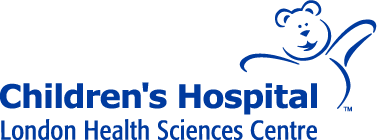You and your child have just learned he or she may have cancer. You may be feeling different emotions like anger, fear or anxiety. As a parent, it is natural to feel concerned or worried. It’s important to keep a positive attitude. Follow the advice of your healthcare team, and talk to your child and entire family. Speaking openly with your child helps build trust. Some things you and your child may expect, include:
Diagnosing Cancer
Your child may have an X-ray and a CT scan to determine if he has cancer. He may also be scheduled for a biopsy, a surgical procedure to remove and examine tissue from a tumor. You might meet with an oncologist, a doctor who works with cancer patients. The oncologist will tell you if your child has cancer or not. It’s important to know that many kids who get cancer can be treated and cured.
Cancer Treatments
Common cancer treatments include chemotherapy, which means getting anti-cancer drugs through an IV, and radiation, which means powerful energy waves (like X-rays) are used to kill cancer cells. Surgery also might be done to remove tumors. In some cases, such as leukemia, a bone marrow or stem cell transplant might be done to help you be healthy again.
Hair Loss
Most people think about cancer when they see a child who is bald. Cancer does not cause hair to fall out, but the powerful drugs and treatments used to kill cancer cells (chemotherapy and radiation) kill the cells that make hair grow, too. A child getting chemotherapy may lose a lot of hair quickly, but the hair will grow back when the treatment is stopped.
Bravery Beads Program
Children and adolescents treated for cancer at the Children’s Hospital are invited to participate in the Bravery Beads Program.
Children receive a “starter necklace” which includes a string and beads to spell their name.
They can then collect beads to acknowledge the many experiences they face over the course of treatment. Each child can create a unique necklace of beads, with each bead representing different elements of the treatment process.
Beads are available in the Paediatric Medical Day Unit and on Paediatric Inpatients.
We hope that the Bravery Beads Program helps our children and adolescents overcome the many challenges they face during the course of treatment.
We hope the necklace also provides a positive keepsake of their journey through cancer treatment at Children’s Hospital.
Tips on Helping Your Child
Here are some tips to help your child feel safer about his upcoming visit:
- Listen to your child.
- Be honest about what will happen and what may hurt.
- Use short, simple terms they know.
- Reassure them that if something hurts, there are ways to help the pain, including medicine, relaxation, listening to music and playing games.
- Use one of their stuffed animals to show what will happen and encourage him to ask questions and talk about his fears.
- Reassure them that having to go to the hospital does not mean he has done something wrong.



